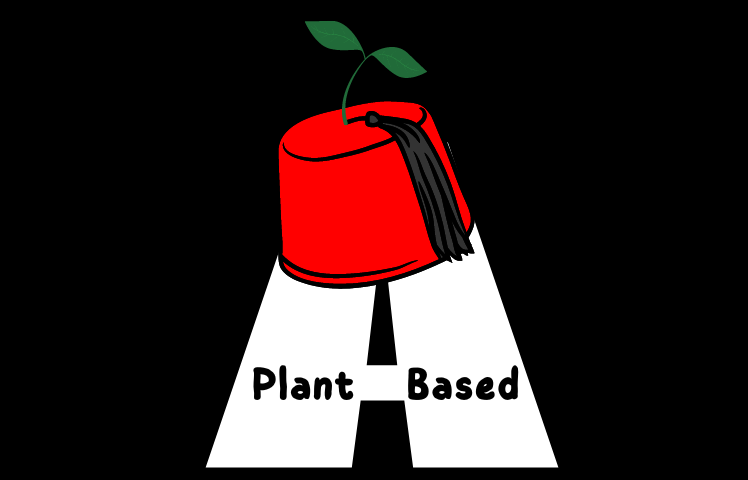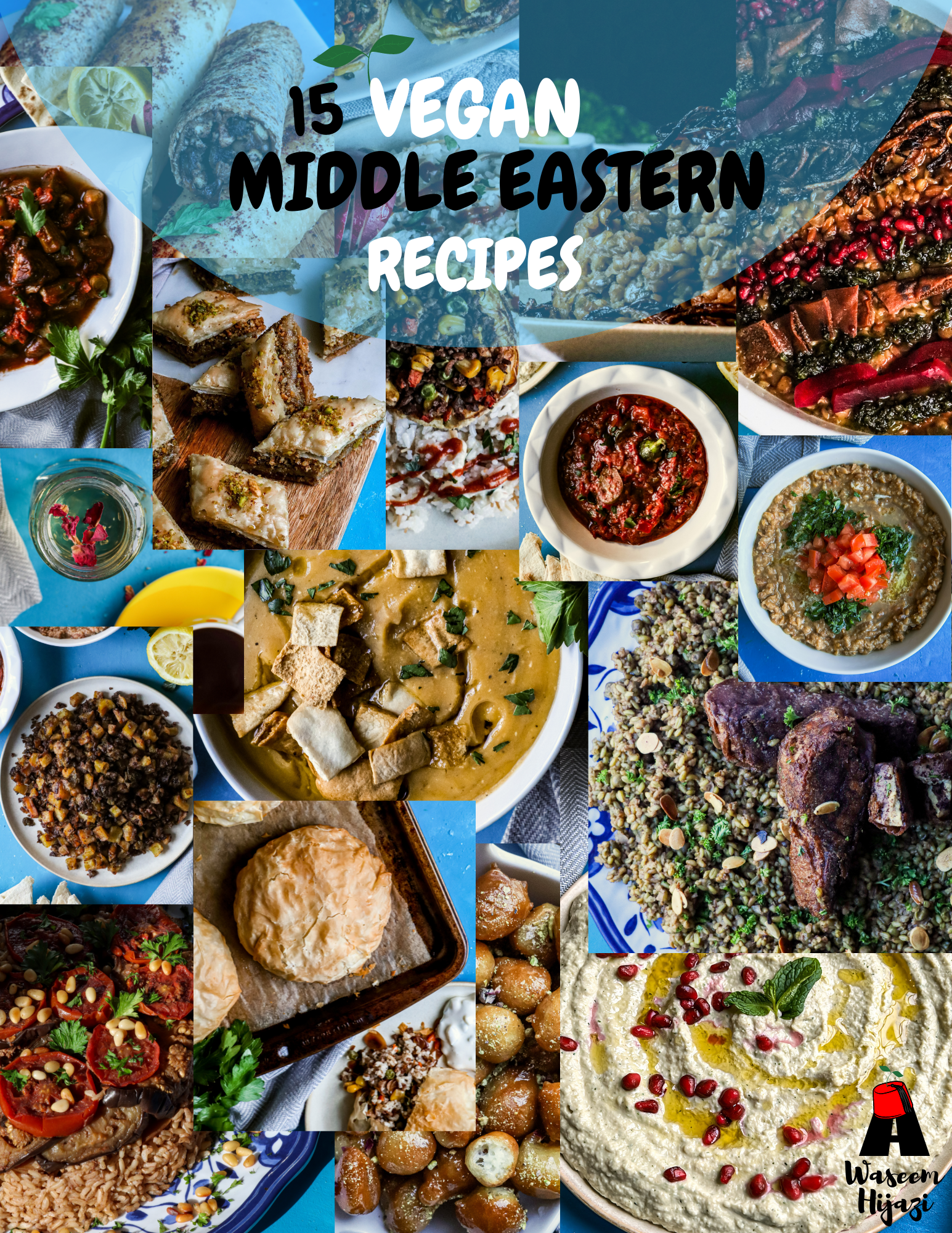Learn how to make Yalanji filling to use as a stuffing for grape leaves, zucchini/squash, cabbage leaves, eggplants, and more. Find tips to help guide you through the process of making stuffed vegetables using this delicious tangy Yalanji filling.

What’s Yalanji?
Yalanji is a famous appetizer from the Middle East known as the vegetarian grape leaves. They’re stuffed with a tangy vegetable rice filling. Made of fresh herbs, tomatoes, onions, pomegranate molasses, and a few more spices. The filling is also used to make other stuffed vegetables like: zucchinis, eggplants, cabbage rolls, and more. Check out how to make Yalanji filling below.
Ingredients You’ll Need

- Tomatoes: Firm fresh tomatoes is best for this recipe. Roma tomatoes work great.
- Onions: Green onions or white onions.
- Parsley (curly or flat): Wash thoroughly. Use the stems too.
- Mint (fresh or dried): Only use a little dried mint, or a lot of freshly chopped mint.
- Lemon juice (freshly squeezed): Use bottled lemon juice if necessary.
- Pomegranate Molasses: Find it at Arab / Middle Eastern grocery stores.
- Extra Virgin Olive Oil: Use good quality olive oil for best results.
- Sumac: Optional to add extra tang.
Preparing The Rice

Wash the rice thoroughly until water runs clear. Soak in cold water for 30 minutes while you work on the sauce ingredients. Drain it out and place in a bowl to mix with the sauce later.
Tip: Make sure to use short grain rice (like Jasmine rice or Egyptian rice) for stuffing vegetables.
Making The Rice

If you have a food processor, it’s great to whip it out to speed things up. It’s convenient to blend the rest of the Yalanji filling ingredients. Alternatively, finely chop the vegetables and herbs into equal small size by hand, then mix up the remaining ingredients in a bowl.
Making The Filling

Combine the drained rice with the sauce in a large bowl. Make sure to cover all the rice, pushing it down under the sauce with the back of a spoon. Soak for 30 minutes. Strain out the liquids into two separate bowls. Drain by sitting in a strainer in a bowl until most liquid is pressed out, saving it for later. Empty the rice mixture into a separate bowl.

Save the strained liquid sauce from the rice into a separate bowl. This will be used to submerge in the pot of stuffed vegetables.
Tip: It’s important to strain out as much liquid as possible from the vegetable rice filling. As it’s sitting in the strainer, press down the marinated mixture with the back of a spoon to help extract excess liquids.
How To Use Yalanji Filling

Yalanji can be enjoyed in many different forms. You can use the tangy filling to stuff in lots of vegetables, like: (1) the traditional grape leaves, (2) stuffed squash, (3) cabbage rolls, (4) eggplant & zucchini bites, and more!
Find step-by-step tutorials and guides on how to core squash and how to stuff cabbage rolls using this Yalanji filling recipe.
Yalanji Filling Recipe
If you have any questions about this recipe, or gave it a try, I’d love to hear your thoughts in the comments section below. Remember to rate the recipe with ⭐️⭐️⭐️⭐️⭐️. This will help us sustain Plant Based Arab.
Snap a photo of your dish, and tag us on Instagram @PlantBasedArab, so we can see and share your remake!
How To Make Yalanji Filling
Course: Sides, Appetizers, FillingCuisine: Arabic, Middle EasternDifficulty: Easy8
servings20
minutesLearn how to make Yalanji filling to use as a stuffing for grape leaves, zucchini/squash, cabbage leaves, eggplants, and more. Find tips to help guide you through the process of making stuffed vegetables using this delicious tangy Yalanji filling.
Ingredients
2 cups short grain rice (Egyptian or Jasmine), rinsed and soaked
2 large tomatoes
3 stalks of green onions
1 bunch curly parsley
1/2 tsp dried mint
2 lemons, juiced
2 tbsp pomegranate molasses
2 tbsp extra virgin olive oil
1 tbsp salt – adjust to taste
1 tsp black pepper
1/2 tsp sumac, optional
Directions
- Rinse the rice thoroughly under cold water until it runs clear. Soak for 30 minutes. Drain then empty into a bowl.
- Use a food processor (if available) to blend together the remaining ingredients into a sauce/ salsa. Or finely chop the tomatoes, green onions, and parsley; whisking everything together in a bowl.
- Combine both rice and sauce in a large bowl. Make sure to cover all the rice, pushing it down under the sauce with the back of a spoon. Soak for 30 minutes.
- Drain by sitting in a strainer in a bowl until most liquid is pressed out, saving it for later. Empty the rice mixture into a separate bowl.
- Use this Yalanji filling to stuff vegetables like: grape leaves, eggplants & zucchinis, squash and cabbage rolls, and more.
- Equipment:
– Strainer
– Food processor
In This Post:










[…] Find a detailed recipe post for the Yalanji filling here. […]
[…] on the type of filling you choose to stuff the Kousa with, either sprinkle the rice mixture (if Yalanji filling), or push down the meaty rice mixture from the top, without over-stuffing it. Tap the bottom of the […]
[…] Grape leaves are a great way to use a vegetable to stuff with more vegetables. When blanched and softened, they have a distinct hit of tang in flavour. While the dish was traditionally created for a meaty rice filling, they’re often stuffed with other variations of vegetable fillings. Like the tangy Yalanji filling. […]
[…] and Vegetables: If you prefer a naturally-vegan option, you can use a Tangy Yalanji Filling, made with rice and an assortment of vegetables and herbs. Common vegetables used in this filling […]